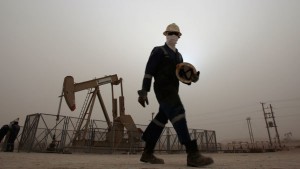How OPEC Weaponized the Price of Oil
< < Go Back
It appears OPEC, led by Saudi Arabia, is hoping falling oil prices will crush competition.
If there ever was doubt about the strategy of the Organization of Petroleum Exporting Countries, its wealthiest members are putting that issue to rest.
Representatives of Saudi Arabia, the United Arab Emirates and Kuwait stressed a dozen times in the past six weeks that the group won’t curb output to halt the biggest drop in crude since 2008. Qatar’s estimate for the global oversupply is among the biggest of any producing country. These countries actually want — and are achieving — further price declines as part of an attempt to hasten cutbacks by U.S. shale drillers, according to Barclays Plc and Commerzbank AG.
Crude fell 48 percent last year and has declined 35 percent since OPEC affirmed its output target on Nov. 27. That decision, while squeezing revenues for OPEC members in 2015, aims at preserving their market share for years to come.
“The faster you bring the price down, the quicker you will have a response from U.S. production — that is the expectation and the hope,” said Jamie Webster, an analyst at consultants IHS Inc. in Washington. “I cannot recall a time when several members were actively pushing the price down in both word and deed.”
The four Middle East OPEC members are counting on combined reserve assets estimated by the International Monetary Fund at $826.4 billion to withstand the plunge in prices. Petroleum represents 63 percent of their exports.
The price decline will cost all 12 OPEC members a total of $257 billion in lost revenue this year, according to the EIA. Venezuela has a 93 percent chance of defaulting on its debt over the next five years, according to CMA, a data provider owned by McGraw Hill Financial Inc.
OPEC won’t reverse course even if oil prices fall as low as $20 a barrel or non-OPEC countries offer to help with production cuts, Saudi Arabian Oil Minister Ali Al-Naimi said in an interview with the Middle East Economic Survey on Dec. 21. The kingdom may even bolster output if non-OPEC nations do so, he said. The global oversupply is 2 million barrels a day, or 6.7 percent of OPEC output, Qatar estimates.
OPEC has no plans to meet before its next scheduled conference in June, Kuwaiti Oil Minister Ali al-Omair said on Dec. 16. Prices will recover in the second half as oil producers with the highest costs are compelled to scale back operations, he said.
More From ThinkAdvisor:




